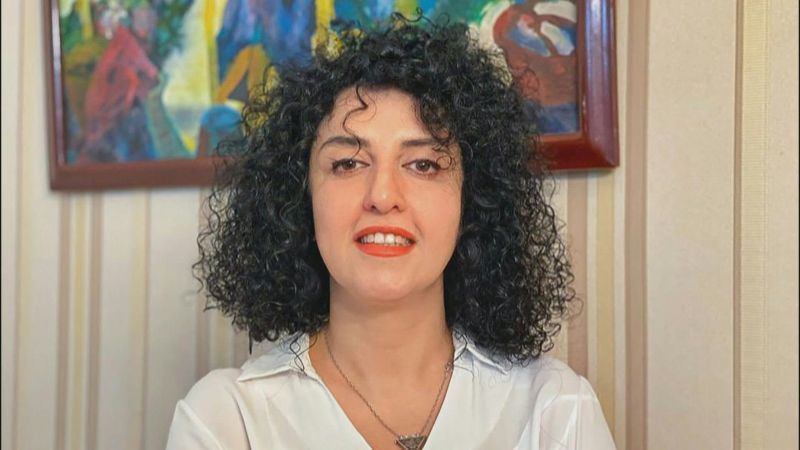- Home
- Arab World
- Iran Grants Nobel Laureate Mohammadi Temporary Release on Medical Grounds

Nobel Peace laureate Narges Mohammadi ©BEHROUZ MEHRI / NARGES MOHAMMADI FOUNDATION / AFP
Iran has released Nobel Peace laureate Narges Mohammadi, jailed since November 2021, for three weeks on medical grounds, her lawyer, Mostafa Nili, posted on social media.
Over the past quarter century, Mohammadi, 52, has been repeatedly tried and jailed for her vocal campaigning against Iran's widespread use of capital punishment and its mandatory dress code for women.
"Based on the advice of the examining doctor, the public prosecutor suspended the jail sentence against Narges Mohammadi for three weeks and she was released from prison," Nili said on X.
"The grounds for her release are her physical condition after the removal of a tumor and a bone graft three weeks ago.
"The tumor was benign but she needs check-ups every three months."
Mohammadi's family and supporters swiftly put out a statement protesting that the three weeks' medical leave was not enough.
"A 21-day suspension of Narges Mohammadi's sentence is inadequate. We ask for Narges Mohammadi's immediate and unconditional release or at least an extension of her leave to three months," they said in a statement.
"The denial of proper medical care and sufficient recovery time post-surgery has led to the rapid development of bedsores and intensified pain in her back and legs."
Mohammadi has spent much of the past decade behind bars and has not seen her twin children, who live in Paris, since 2015.
She is serving her sentence in the women's section of the capital's notorious Evin prison with around 50 other inmates, according to her husband Taghi Rahmani.
In June, she was sentenced to an additional year behind bars for "propaganda against the state."
She refused to appear in court for the trial after her request for it to be held in public was rejected.
Even behind bars, the Nobel laureate has not given up campaigning, staging protests in the prison yard and going on hunger strikes.
In a letter from prison in September, she condemned the "devastating oppression" of women in Iran.
The letter was published by her foundation to mark the second anniversary of the nationwide protests that followed the death in custody of Mahsa Amini, an Iranian Kurdish woman detained for an alleged breach of the dress code.
Mohammadi won the Nobel Peace Prize in 2023, primarily for her campaigning against the death penalty in Iran. Her children collected the award on her behalf as she was in prison at the time.
Human rights groups, including Amnesty International, say Iran carries out more executions each year than any other country apart from China, for which no reliable figures are available.
Born in the northwestern city of Zanjan in 1972, Mohammadi studied physics and pursued a career in engineering alongside work as a journalist for several reformist media outlets.
In the 2000s, she joined the Defenders of Human Rights Center set up by 2003 Nobel Peace Prize winner Shirin Ebadi, an organization of which Mohammadi remains vice president.
She was jailed from May 2015 to October 2020 for "forming and leading an illegal group," campaigning for the abolition of the death penalty in Iran.
With AFP
Read more




Comments